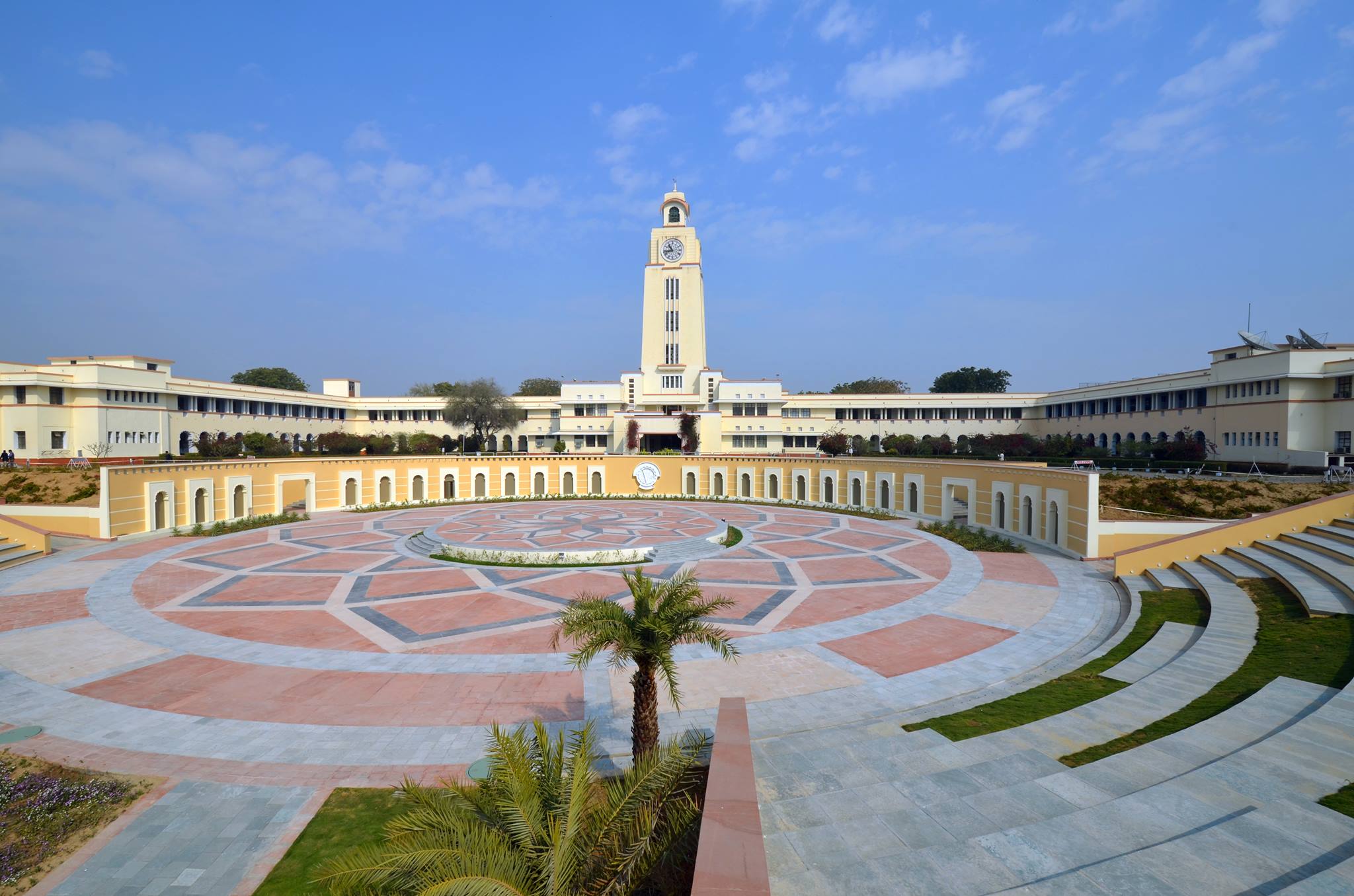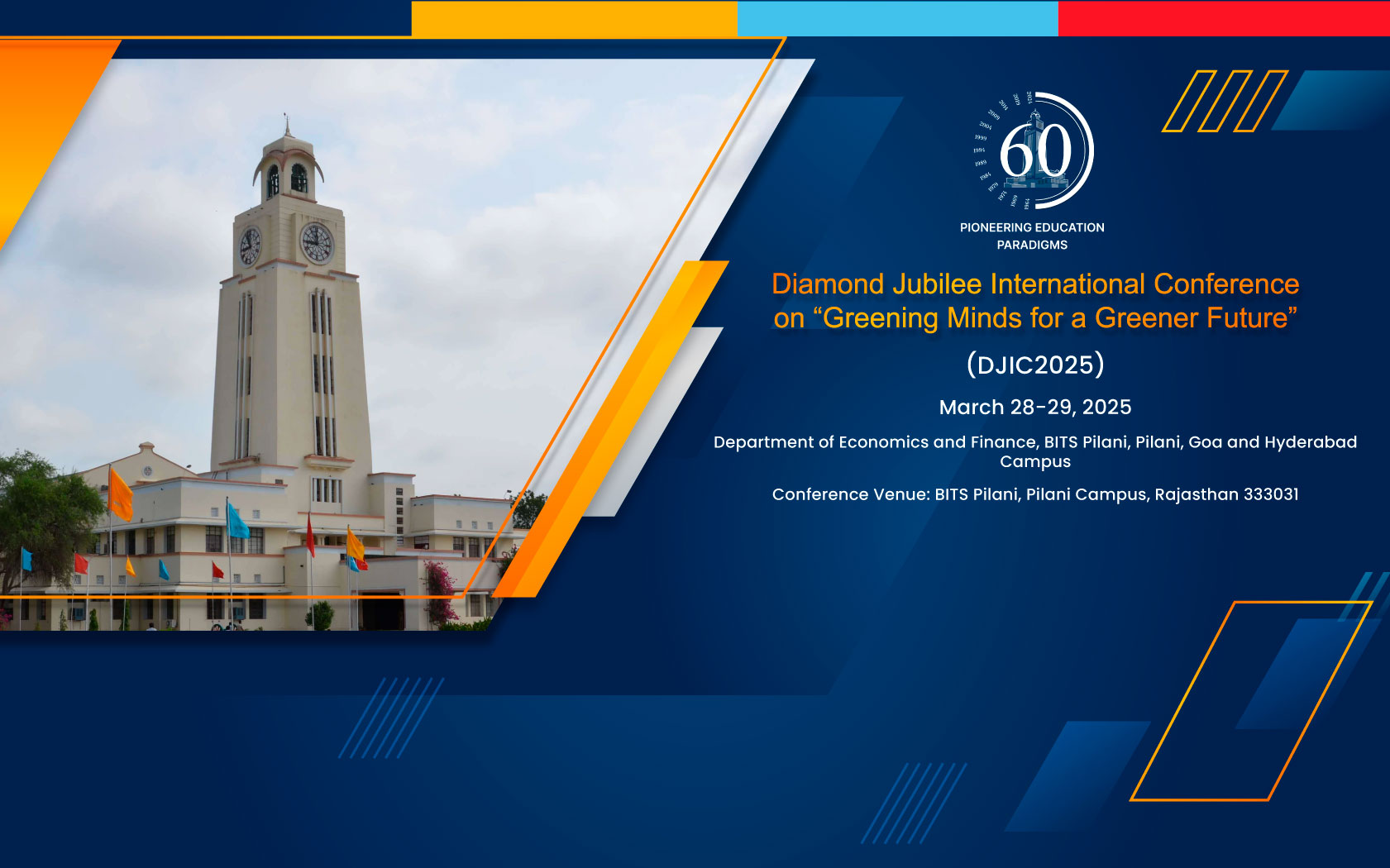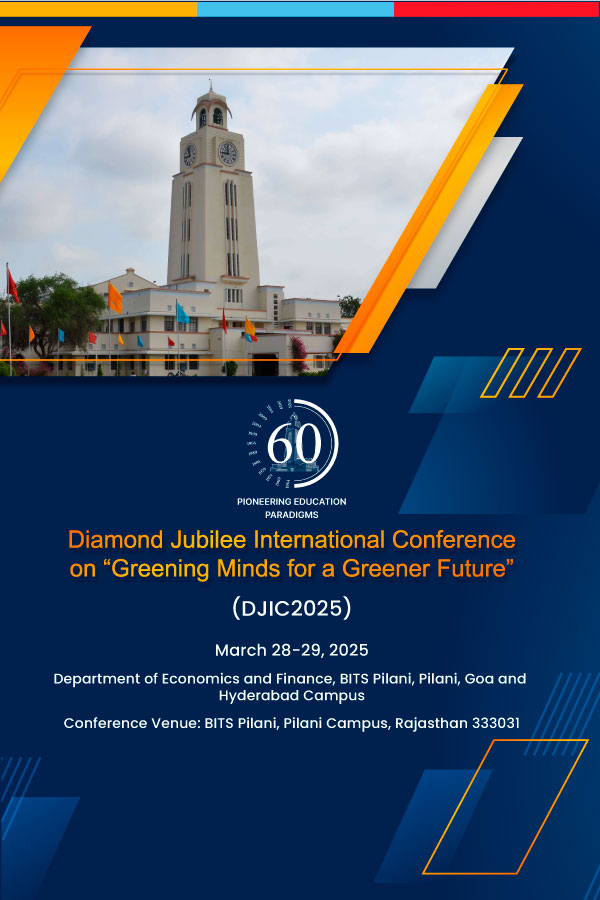Diamond Jubilee International Conference (DJIC2025)
About BITS Pilani
Started in the early 1900s as a small school, which gradually blossomed into a set of colleges for higher education ranging from Humanities to Engineering, Birla Institute of Technology & Science (BITS), Pilani has been recognized as a university since 1964. The continuous effort of BITS Pilani to impart the highest quality of technical and management education has been rewarded by the Government of India recently, when it achieved the status of Institution of Eminence. Over the years, BITS Pilani has provided the highest quality of technical and management education to students from all over India, admitted on the basis of merit. BITS Pilani is located in the Vidya Vihar campus adjacent to the town of Pilani in Rajasthan

About Department of Economics and Finance
The Department of Economics & Finance at Pilani Campus is one of the oldest departments of the Institute. The current Master’ degree in Economics program started in 1964. At present, the department offers M.Sc. Economics as the first degree, Minor in Finance, Minor in Computational Economics, and Ph.D. programmes. The Economics and Finance Department at BITS Pilani – Goa and Hyderabad Campuses offer M.Sc (Hons) Economics as a first degree, Minor in Finance and Ph.D. programmes. The Departments focus on promoting quality education, nurturing young talents, and enriching intellectual contributions regarding research output in identified thrust areas.
About the Conference
Greening Minds for a Greener Future
This is a two-day International conference organised as part of the Diamond Jubilee celebration of BITS Pilani. The Diamond Jubilee International Conference (DJIC2025), titled "Greening Minds for a Greener Future" emphasizes the crucial role of economic and financial perspectives in achieving sustainable development and environmental stewardship. We believe that the theme of the conference underscores the interconnectedness between economic outcome, public policy, and environmental outcomes, promoting for a gradual transition towards more sustainable practices at individual, firm, and macroeconomic levels. Key objectives of the conference include:
- Micro and Macroeconomic insights: Exploring how micro and macroeconomic factors influence environmental decisions and actions. By understanding the micro and macroeconomic factors influencing pro-environmental actions, the conference seeks to enhance strategies for fostering a long-term sustainable growth
- Inspire Action and Change: Promoting environmental literacy and consciousness among diverse stakeholders, including policymakers, educators, businesses, and the general public to adopt environmentally friendly practices. By sharing success stories and best practices around the world, the conference aims to catalyze widespread adoption of sustainable initiatives in various segments of the society. The conference creates a platform, fostering a deeper understanding of the environmental challenges we face and the urgency of sustainable solutions.
- Innovation and cost-effective Solutions: Showcasing innovative approaches, entrepreneurial activities, and technologies that support sustainability goals, while also investigating their socioeconomic impacts and acceptance among different stakeholders.
- Address Global Challenges: Address pressing environmental issues such as climate change, biodiversity loss, pollution, and resource depletion from a multidisciplinary perspective. The conference encourages discussions on integrated approaches that consider both economic and financial dimensions of sustainability
- Long-term, inclusive and sustainable development: Envisioning a future where sustainable practices are ingrained in societal norms, contributing to a healthier planet and improved quality of life for all.
Overall, the "Greening Minds for a Greener Future" conference organized by BITS Pilani at its diamond jubilee is a testament to the enduring commitment towards sustainability, showcasing the transformative potential of integrating socio-economic insights with environmental conservation efforts on a global scale.





